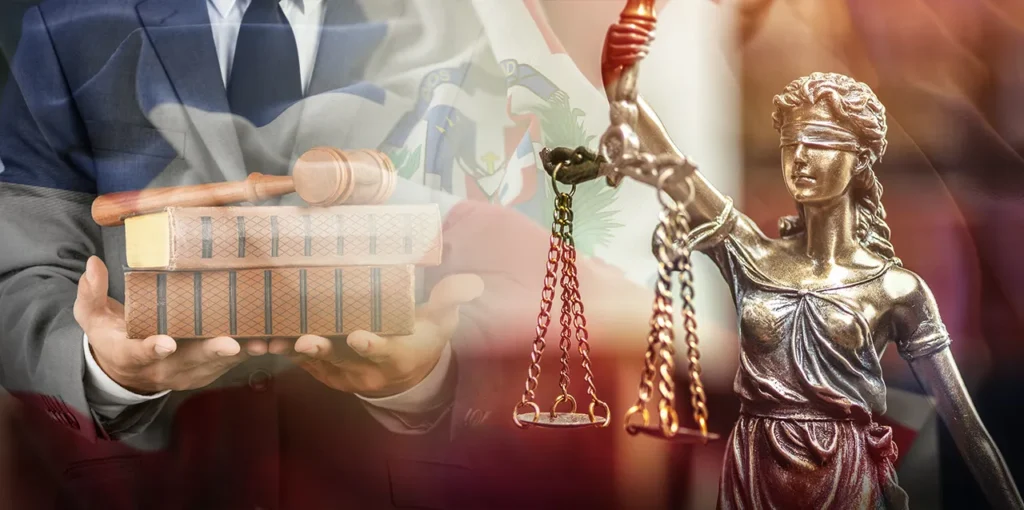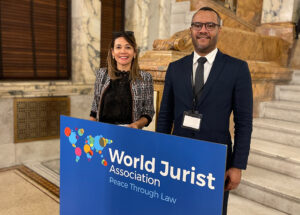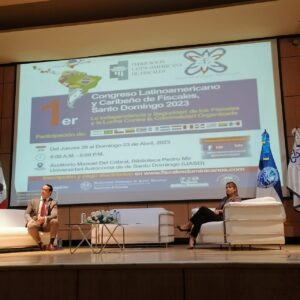The Dominican criminal process presupposes a set of guidelines and basic concepts that seek to ensure the rights and guarantees corresponding to the accused, the victim, and all parties of the process, as contemplated within the 28 fundamental principles of the Criminal Procedure Code. Through these principles that we began studying in the previous article and concluded in this one, the criminal justice system must become a more human one, more respectful of the rights of the accused and the victims and one with a higher level of legal security for the parties involved.
Article 20 of the criminal procedure code establishes the right to compensation for judicial error as a principle of the Dominican criminal process: “everyone has the right to be compensated in case of judicial error, in accordance with this code”; In this sense, articles 255 and 257 of the code also establish that the convicted person can be compensated if, following a review of his sentence, he is absolved or with a lesser sentence.
This compensation is based on the prison time suffered in excess, or if it is determined that the criminal act did not occur, did not constitute a crime or simply the accused did not have any participation in it. This is the legal mandate and the spirit of the legislator in recognizing the right to compensation; however, in practice there are few cases of people compensated for the aforementioned reasons.
The following principle is the right to appeal: all parties involved in criminal proceedings have the right to have a higher court review the first degree decision that has been unfavorable. Although in the text it is read as a right conferred only on the accused, articles 395, 396 and 397 of the code grant the right to appeal to the public prosecutor, the victim, the civil party and to the third party civilly sued.
This principle has its endorsement in article 69 of the Constitution, which also establishes that the higher court may not aggravate the sanction imposed when only the convicted person appeals the sentence. It means that the sentence against the accused will only be possible to aggravate it if the complainant or public prosecutor also appeals the decision, and if the case needs it.
In the principle of separation of functions, the legislator comes to clarify the investigation and prosecution functions, which are separated from the jurisdictional function; the judge cannot carry out acts that imply the exercise of criminal action nor the public ministry jurisdictional acts. Article 149 of the Constitution states that the functions of the judge are to administer justice, resolving conflicts between natural or legal persons, while the public ministry is distinguished as the actor in the system that directs the criminal investigation and exercises public action on behalf of the society(art. 151 constitution).
Article 23 of the criminal procedure code enshrines the obligation of every judge to decide: judges cannot refrain from ruling on the pretext of silence, contradiction, deficiency, obscurity or ambiguity in the terms of the laws, nor unduly delay a decision. The civil code has also contemplated it this way: the judge who refuses to judge on the pretext of silence, obscurity or insufficiency of the law, may be prosecuted as guilty of denial of justice.
Following principle 23 is principle No. 24, which establishes that “judges are obliged to justify their decisions in fact and law, through a clear and precise indication of the grounds. The simple relation of the documents of the procedure or the mention of the requirements of the parties or of generic formulas does not replace in any case the motivation. Failure to comply with this guarantee is a ground for challenging the decision, in accordance with the provisions of the code without prejudice to any other sanctions that may apply.”
This is one of the main principles that the parties regularly use to support an appeal. And it is that the mandate of the principle no. 24 is clear, generic formulas are not enough, the judge must explain to the parties in fact and law his basis to make a decision, according to the evidence presented and the debate generated, under penalty of nullity. It is a guarantee that the parties enjoy, that a true and healthy administration of justice is given in their case, explaining the reasons why X decision was reached.
Article 25 refers to the interpretation of procedural rules that restrict freedom or establish procedural sanctions: these must be interpreted restrictively. The analogy and extensive interpretation are allowed to favor the freedom of the accused or the exercise of his rights and powers, taking into account in any case that doubt will always favor the accused.
This analogical and extensive interpretation from which the article infers is only possible when they operate for the benefit of the one to whom a fact is being imputed, or in cases that are interpreted for the application and recognition of fundamental principles and rights, or to guarantee them.
The principle No. 26 enshrined in the article of the same number, establishes that the elements of evidence only have value if they are obtained and incorporated into the process in accordance with the principles and norms of the code, for which their non-compliance can be invoked in any state of causes and provokes the nullity of the act and its consequences. This guarantee provides the accused to be subjected or judged only by obtaining evidence in the manner and requirements required by law, in order to avoid arbitrariness and subjectivity against him.
In article 27 we find the first principle intended solely and exclusively for the victim, and the only one modified by Law 10-15 given the evident inequality of their rights compared to the accused (as I always say: the victim, the forgotten one of the justice system). This principle establishes that the victim has the right to assume her representation and to be assisted by a technical representative of her choice. If you do not have the economic capacity to designate one, the State will provide you with one. The victim has the right to intervene in the criminal procedure and to be informed of its results in the manner provided by the code.
Unfortunately, as is known, the State still does not have free legal representation for victims with a national scope for their defense, which has a negative impact on access to justice for the protection of their rights. Sadder still is to see that it was not until 2015 when our legislators anticipated this inequality of rights for the victim, and although significant steps have been taken through the body of lawyers of the women’s ministry and the department of legal representation of the rights of the victim of the Attorney General’s Office -RELEVIC-, their rights are not fully safeguarded.
And finally, principle No. 28 contemplates what is the execution of the sentence: this is carried out under judicial control and the convicted person can always exercise all the rights and powers recognized by law. The State guarantees minimum living conditions in prisons and provides the means that allow, through the application of a progressive system of criminal execution, the social reintegration of the convicted person. This principle seeks to execute and comply with the decision issued by the court, while guaranteeing the conditions for the reinsertion of the accused through programs and opportunities offered in the penitentiary center.
As can be seen, these principles that govern the criminal process were conceived to guarantee and protect the rights of all parties. The challenge is then that the justice operators assume them, that the practice absorbs them, that each procedural action attends them and otherwise, that the judges are ready to declare the nullity and invalidity of any contrary action, imposing the corresponding sanctions when these guiding principles are violated or ignored.
Sonia Hernández is a founding partner of the Global District Law firm, former prosecutor of the Santo Domingo province and expert consultant on human trafficking for the International Justice Mission, Dominican Republic (IJM). She has a master’s degree in Fundamental Rights from Universidad Carlos III de Madrid, Spain, and a specialization in Criminal Procedure Law from Universidad Autónoma de Santo Domingo (UASD).






